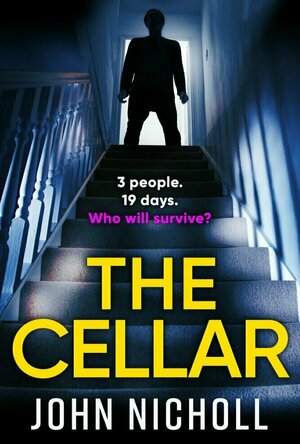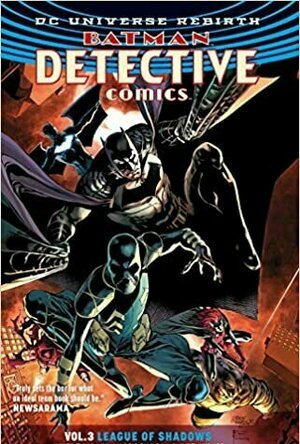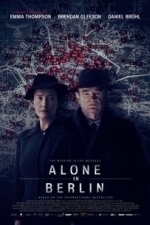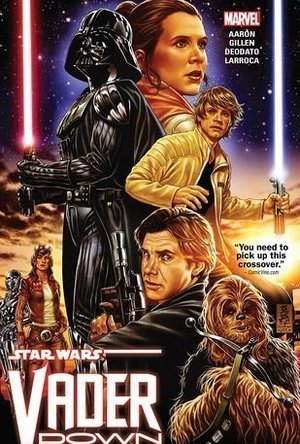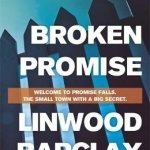Search
Search results
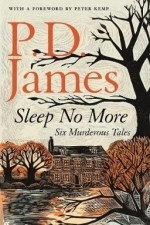
Sleep No More: Six Murderous Tales
Book
The acknowledged Queen of Crime, P. D. James, was a past master of the short story, weaving together...
crime
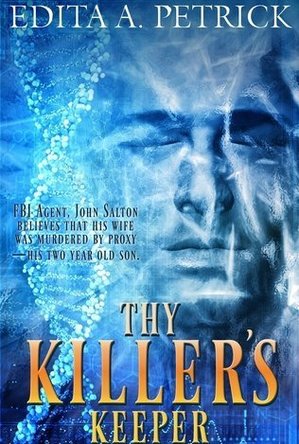
Thy Killer's Keeper
Book
John Salton is everything that a country police can expect of its agent. He has brilliant analytical...
sci fi science fiction paranormal thriller crime detective
Hazel (2934 KP) rated The Cellar in Books
Nov 20, 2022
This is a dark, disturbing and violent psychological thriller that pulls no punches and is highly descriptive which may be a bit much for some; I admit that I winced and drew breath a few times but kept going as I was gripped and already highly invested in the story.
The characters are excellent and feel real. Marcus Gove is a despicable person; I can't even bring myself to call him a human being he is that bad, he is a sad, twisted and demented individual who has absolutely no moral compass or redeeming qualities whatsoever - an absolutely brilliant character and one you love to hate.
Lucy is a young woman who is generally content apart from being in an unfulfilling relationship and her mum being diagnosed with cancer but things get a whole lot worse when she comes into the crosshairs of Marcus Gove and her world turns into the most horrendous nightmare.
Ray Lewis is the detective tasked with finding Lucy; not so easy when there are few clues and even less evidence and whilst he may be unfit, unhealthy and thought of as a dinosaur, he goes about his business in a methodical way with some much-needed humour.
Told from the points of view of each of the main characters and at a really good pace, this is a book that has you wanting to put down at times due to the graphic nature of what is being written and not put it down due to the gripping nature of the story ... not put it down won out with me.
This is the first book by John Nicholl I have read before and it certainly won't be the last especially if they are as addictive and compelling as this has been and I therefore have no hesitation in recommending it to others who love a gritty and dark thriller who don't mind graphic and disturbing details that have you wincing as you read.
Many thanks to Boldwood Books and NetGalley for enabling me to read and share my thoughts of The Cellar.
The characters are excellent and feel real. Marcus Gove is a despicable person; I can't even bring myself to call him a human being he is that bad, he is a sad, twisted and demented individual who has absolutely no moral compass or redeeming qualities whatsoever - an absolutely brilliant character and one you love to hate.
Lucy is a young woman who is generally content apart from being in an unfulfilling relationship and her mum being diagnosed with cancer but things get a whole lot worse when she comes into the crosshairs of Marcus Gove and her world turns into the most horrendous nightmare.
Ray Lewis is the detective tasked with finding Lucy; not so easy when there are few clues and even less evidence and whilst he may be unfit, unhealthy and thought of as a dinosaur, he goes about his business in a methodical way with some much-needed humour.
Told from the points of view of each of the main characters and at a really good pace, this is a book that has you wanting to put down at times due to the graphic nature of what is being written and not put it down due to the gripping nature of the story ... not put it down won out with me.
This is the first book by John Nicholl I have read before and it certainly won't be the last especially if they are as addictive and compelling as this has been and I therefore have no hesitation in recommending it to others who love a gritty and dark thriller who don't mind graphic and disturbing details that have you wincing as you read.
Many thanks to Boldwood Books and NetGalley for enabling me to read and share my thoughts of The Cellar.
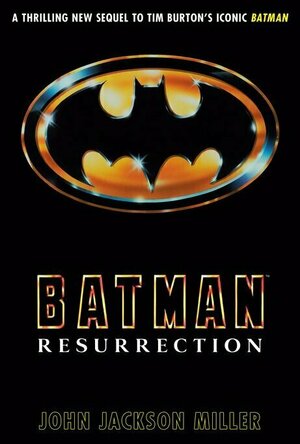
Batman: Resurrection
Book
After The Joker’s death, Batman and Gotham City face a mysterious new threat in this direct sequel...
Gareth von Kallenbach (980 KP) rated Stuber (2019) in Movies
Jul 8, 2019
Stuber Review
There’s no denying that ridesharing has become one of the fastest growing industries around the world. What used to be a chore of finding a cab company and calling them for a pickup (or flagging them down in the streets of New York) has now been simplified with a smartphone app. What used to be thirty minutes waiting for your ride to arrive has now been reduced to minutes thanks to technology. So, a movie featuring a lovable Uber driver who gets caught tangled up with a cop chasing a notorious fugitive shouldn’t sound like to much of a stretch.
Stuber introduces us to Stu (Kumail Nanjiani) a man who is madly in love with his plutonic friend and pushed around daily by his boss at the local big chain sporting goods store. In an effort to help subsidize his friend Becca’s (Betty Gilpin) spin studio he moonlights as an Uber driver. Fate intervenes one day when Detective Vic (Dave Bautista) who has literally just undergone corrective eye surgery receives a tip that the drug lord who had murdered his partner just months before has turned up again in the city. Unable to drive, and recently introduced to Uber by his daughter, Detective Vic is forced to hold hostage Stu as he tracks the killer through the city in an effort to bring him to justice.
Stuber features a star-studded cast that brings this amazingly heartfelt and incredibly funny film to the big screen. With a supporting cast such as Karen Gillan, Mira Sorvino and Natalie Morales to back them up, the audience is taken on a laugh filled, action-packed movie that certainly shows better than the advertisements would lead you to believe. The characters are instantly likable, and no matter how much cursing (of which there is a lot) and violence is portrayed on the screen that never changes. Kumail Nanjiani does an amazing job as the lovable Stu. His comedic timing regularly hits the mark, and his portrayal of a man longing to escape the friend zone never gets old. Bautista delivers what may be one of the most defining roles that he has played. While he regularly is able to stand out among his peers in his previous films, this is one of the first where he is asked to carry the film on his own shoulders…and carry it he does. The partnership and true friendship between the two is believable and continues to strengthen as the film moves on. I might even go as far as to say that the chemistry between these two incredible actors is magical.
That’s not to say that Stuber is a perfect movie, it’s predictable and doesn’t really bring anything new to the table. It does however handle the cop who can’t drive scenario far better than any movie that has come before it (like that horrendous movie Taxi that came out back in 2004). It’s a movie that could have gotten away with a PG-13 rating with a little less language, which ultimately may have helped it do better in the theaters (only time will tell of course). That being said, the language itself never feels as though it was thrown in for shock value, in fact I imagine that any of us who might wind up in this particular predicament might have a few choice words of our own to spout out throughout the entire adventure.
I got far more out of Stuber than I thought possible. For a movie that has had little fanfare and releases not long after the acquisition of Twentieth Century Fox, it’s incredibly fun and full of just as much heart. To say that I had not expected this to be a movie where the audience would clap when it was over would be a tremendous understatement. It’s good to see that movie studios haven’t given up on fun ideas, even ones that don’t seem to be exceptionally revolutionary or over-the-top. This is one of the most surprising movies of the summer, in a summer full of blockbusters and big budget films Stuber quietly succeeds where many others are likely to fail. Stuber is certainly a movie worth the price of admission, and you might even come out a little happier than when you went in.
4 out of 5 stars
http://sknr.net/2019/07/07/stuber/
Stuber introduces us to Stu (Kumail Nanjiani) a man who is madly in love with his plutonic friend and pushed around daily by his boss at the local big chain sporting goods store. In an effort to help subsidize his friend Becca’s (Betty Gilpin) spin studio he moonlights as an Uber driver. Fate intervenes one day when Detective Vic (Dave Bautista) who has literally just undergone corrective eye surgery receives a tip that the drug lord who had murdered his partner just months before has turned up again in the city. Unable to drive, and recently introduced to Uber by his daughter, Detective Vic is forced to hold hostage Stu as he tracks the killer through the city in an effort to bring him to justice.
Stuber features a star-studded cast that brings this amazingly heartfelt and incredibly funny film to the big screen. With a supporting cast such as Karen Gillan, Mira Sorvino and Natalie Morales to back them up, the audience is taken on a laugh filled, action-packed movie that certainly shows better than the advertisements would lead you to believe. The characters are instantly likable, and no matter how much cursing (of which there is a lot) and violence is portrayed on the screen that never changes. Kumail Nanjiani does an amazing job as the lovable Stu. His comedic timing regularly hits the mark, and his portrayal of a man longing to escape the friend zone never gets old. Bautista delivers what may be one of the most defining roles that he has played. While he regularly is able to stand out among his peers in his previous films, this is one of the first where he is asked to carry the film on his own shoulders…and carry it he does. The partnership and true friendship between the two is believable and continues to strengthen as the film moves on. I might even go as far as to say that the chemistry between these two incredible actors is magical.
That’s not to say that Stuber is a perfect movie, it’s predictable and doesn’t really bring anything new to the table. It does however handle the cop who can’t drive scenario far better than any movie that has come before it (like that horrendous movie Taxi that came out back in 2004). It’s a movie that could have gotten away with a PG-13 rating with a little less language, which ultimately may have helped it do better in the theaters (only time will tell of course). That being said, the language itself never feels as though it was thrown in for shock value, in fact I imagine that any of us who might wind up in this particular predicament might have a few choice words of our own to spout out throughout the entire adventure.
I got far more out of Stuber than I thought possible. For a movie that has had little fanfare and releases not long after the acquisition of Twentieth Century Fox, it’s incredibly fun and full of just as much heart. To say that I had not expected this to be a movie where the audience would clap when it was over would be a tremendous understatement. It’s good to see that movie studios haven’t given up on fun ideas, even ones that don’t seem to be exceptionally revolutionary or over-the-top. This is one of the most surprising movies of the summer, in a summer full of blockbusters and big budget films Stuber quietly succeeds where many others are likely to fail. Stuber is certainly a movie worth the price of admission, and you might even come out a little happier than when you went in.
4 out of 5 stars
http://sknr.net/2019/07/07/stuber/
Joe Goodhart (27 KP) rated Detective Comics Volume 3: League of Shadows in Books
Nov 30, 2020
<i>A little bit of "backstory": I am a sucker for well-executed Ra's al Ghul story! To me, he is one of Batman's best adversaries and one of my personal faves! Add in more human, less off-the-scale like he is under Tom King's run Batman, and you've got a great treat for me! Now, that said, on to my review.</i>
<img src="https://i.imgur.com/MW33UBM.gif"; width="300" height="200">
I am still enjoying my return to reading DC's books rather than the current slop Marvel is serving up. My latest undertaking has been James Tynion IV's run on DETECTIVE COMICS. Last night, I devoured the 3rd volume, "League of Shadows", largely for the reasons in my backstory above.
I know some folks on interwebs have issues with Tynion's writing for the Dark Knight. I've read things like "bland" and "his stories go NOWHERE". I don't know which of his Batman entries they are reading, but thus far, not a one has disappointed.
This one was particularly interesting as it dealt with Cassandra Cain, a former Batgirl/now calling herself "Orphan" as that is what her parents have chosen to do, leaving her <i>orphaned</i>. Her mother is Sandra Wu-San, or as she is better known, Lady Shiva. There is no love lost between Cassandra and her mother; essentially, Shiva treats the poor girl as if she was dead, not even a product of her womb. Sad, really. But, it is good to see Cassandra and Shiva's relationship dealt with following the whole "Rebirth".
I may be in a serious minority here, but I really liked the ending (not <i>really</i> much of Spoiler), where Batman holds her in a embrace, letting her known she is not alone..ever. Sure, Bats is all about the whole "Dark Knight" and "Oooh, feel my scary presence, criminals!", but it was nice to see his human, father-esque side to his character. Much better than the way he is being handled in his main book!
Equally meaty and worthwhile was Ra's inclusion as part of the story. I found him to be well-written, feeling much like "The Demon's Head" that is his being. I was totally able to hear, in my head, his dialogue as read by David Warner, who did his voice in BATMAN: THE ANIMATED SERIES. That definitely seems like Tynion is truly writing at the top of his game!
I was also quite pleased with the subplot of more background to Batwoman's character. I was not really that familiar with her character, other than in the animated DC film. That aside, I found her to be real and decidedly interesting, especially her relationship with her father. Again, some excellent writing from Tynion!
And speaking of Batwoman, how cool was it to see Batman assembling Bat-Family 2.0? This plot element harkened back to the Silver Age, where DETECTIVE COMICS would often do double-sized issues that focused on the then-Bat-Fam: Batman, Robin (Dick Grayson, not yet Nightwing), Batgirl, and sometimes, Elongated Man would get a story in it as well.
The new Bat-Fam consists of Batman (of course!), Batwing (Lucius Fox's son), Batwoman, Orphan (Cassandra Cain), Azrael (who I consider to be not-so-interest, leaving me to skip the last issue of this volume as it was 100% Azrael-centric), Spoiler (Stephanie Brown), Red Robin, and the-now-trying-his-hand-at-being-a-rehabilitated-good-guy Clayface. Quite a mixed bag, almost like a Skittles version of the Bat-Fam, but interesting choices for a collaborative team.
The team functions well enough, but there is some static and tension, as would be true of any team assembled such as this lot. All in all, I really dug the gang, and they really worked well together. Super-smooth idea of introducing a Bat-Fam 2.0! Bravo, James Tynion IV,you are AWESOME for doing this!
It is also worth mentioning the artists for this volume: Marcio Takara and Christian Duce. I was already familiar with Takara's delicious style from his work on Marvel's ALL-NEW WOLVERINE. Christian Duce was previously unknown to me, but after seeing his super-legit art skills, he is going to be one for me to keep an eye for going forward!
Blah, blah, blah, am I right? I could go on and on, but if you weren't reading my blathering, you could be reading this excellent Bat-book. I was going to give it 5-Stars, but I see that I was just giving them out for a while not unlike Oprah giving away new cars! So, that's it! Go already! You need to get a'readin'!
<img src="https://i.imgur.com/MW33UBM.gif"; width="300" height="200">
I am still enjoying my return to reading DC's books rather than the current slop Marvel is serving up. My latest undertaking has been James Tynion IV's run on DETECTIVE COMICS. Last night, I devoured the 3rd volume, "League of Shadows", largely for the reasons in my backstory above.
I know some folks on interwebs have issues with Tynion's writing for the Dark Knight. I've read things like "bland" and "his stories go NOWHERE". I don't know which of his Batman entries they are reading, but thus far, not a one has disappointed.
This one was particularly interesting as it dealt with Cassandra Cain, a former Batgirl/now calling herself "Orphan" as that is what her parents have chosen to do, leaving her <i>orphaned</i>. Her mother is Sandra Wu-San, or as she is better known, Lady Shiva. There is no love lost between Cassandra and her mother; essentially, Shiva treats the poor girl as if she was dead, not even a product of her womb. Sad, really. But, it is good to see Cassandra and Shiva's relationship dealt with following the whole "Rebirth".
I may be in a serious minority here, but I really liked the ending (not <i>really</i> much of Spoiler), where Batman holds her in a embrace, letting her known she is not alone..ever. Sure, Bats is all about the whole "Dark Knight" and "Oooh, feel my scary presence, criminals!", but it was nice to see his human, father-esque side to his character. Much better than the way he is being handled in his main book!
Equally meaty and worthwhile was Ra's inclusion as part of the story. I found him to be well-written, feeling much like "The Demon's Head" that is his being. I was totally able to hear, in my head, his dialogue as read by David Warner, who did his voice in BATMAN: THE ANIMATED SERIES. That definitely seems like Tynion is truly writing at the top of his game!
I was also quite pleased with the subplot of more background to Batwoman's character. I was not really that familiar with her character, other than in the animated DC film. That aside, I found her to be real and decidedly interesting, especially her relationship with her father. Again, some excellent writing from Tynion!
And speaking of Batwoman, how cool was it to see Batman assembling Bat-Family 2.0? This plot element harkened back to the Silver Age, where DETECTIVE COMICS would often do double-sized issues that focused on the then-Bat-Fam: Batman, Robin (Dick Grayson, not yet Nightwing), Batgirl, and sometimes, Elongated Man would get a story in it as well.
The new Bat-Fam consists of Batman (of course!), Batwing (Lucius Fox's son), Batwoman, Orphan (Cassandra Cain), Azrael (who I consider to be not-so-interest, leaving me to skip the last issue of this volume as it was 100% Azrael-centric), Spoiler (Stephanie Brown), Red Robin, and the-now-trying-his-hand-at-being-a-rehabilitated-good-guy Clayface. Quite a mixed bag, almost like a Skittles version of the Bat-Fam, but interesting choices for a collaborative team.
The team functions well enough, but there is some static and tension, as would be true of any team assembled such as this lot. All in all, I really dug the gang, and they really worked well together. Super-smooth idea of introducing a Bat-Fam 2.0! Bravo, James Tynion IV,you are AWESOME for doing this!
It is also worth mentioning the artists for this volume: Marcio Takara and Christian Duce. I was already familiar with Takara's delicious style from his work on Marvel's ALL-NEW WOLVERINE. Christian Duce was previously unknown to me, but after seeing his super-legit art skills, he is going to be one for me to keep an eye for going forward!
Blah, blah, blah, am I right? I could go on and on, but if you weren't reading my blathering, you could be reading this excellent Bat-book. I was going to give it 5-Stars, but I see that I was just giving them out for a while not unlike Oprah giving away new cars! So, that's it! Go already! You need to get a'readin'!
Bob Mann (459 KP) rated Alone in Berlin (2017) in Movies
Sep 29, 2021
Small Rebellions.
Once again, World War II turns up another true story of quiet valour to turn into a motion picture. At a time when Trump is pontificating about so called “fake news”, here is a timely tale from history which centres on the battle against genuinely fake news: the Nazi propaganda machine.
After losing their only son in the French campaign, Berliners Otto (Brendan Gleeson,”Harry Potter and the Goblet of Fire”) and Anna (Emma Thompson, “Saving Mr Banks“) turn against the regime and in repeated acts of rebellion Otto laboriously hand writes subversive postcards to leave in office blocks around Berlin.
Resistance is futile. Otto (Brendan Gleeson) and Anna (Emma Thompson) out on a new mission.
Out to catch him is local police investigator Escherich (Daniel Brühl) but in an age before CCTV that’s no easy task and with increasing SS pressure the stakes for Escherich steadily increase. For Otto and Anna, the stress is there but both are resigned to their fate: with their son stolen from them for an unjust cause they are an island of indifference in an unholy land. Both are ‘alone in Berlin’.
Daniel Brühl as police detective Escherich getting more than he bargained for from the SS.
After 70 years it still chills the blood to see German locations decked out in Nazi regalia, but one of the joys of this film is this rendering of life in wartime Berlin: starting with jubilation at German progress prior to D-Day and turning to despair and genuine danger as the tide turns towards 1945. In a pretty bleak film there are touches of black comedy now and then: Otto’s carpentry company is being encouraged “by the Fuhrer” to double and triple their output… of coffins.
A (very clean) Berlin, decked out with Nazi regalia.
More joy comes from the star turns of Gleeson and Thompson, both of who deliver on their emotionally challenging roles. Gleeson in particular makes a very believable German with a sour demeanor and a steely determination. But the star acting turn for me goes to the wonderful Daniel Brühl (“Rush“) as the tormented police detective, bullied into an ethical corner by the SS. The finale of the film – whilst not seeming quite believable – makes for a nicely unexpected twist.
The Nazi Womens’ League out on another fund-raising sweep, providing Thompson with one of her best scenes in the film with an Oberführer’s wife.
Based on a novel by Hans Fallada, the lead writing credits for the piece are shared between Achim von Borries and the director Vincent Perez – in a rare directorial outing for the Swiss actor. The script exudes a melancholic gloom and at times expresses beautifully both the grief and love shared by this older couple. But some of the dialogue needs more work and we don’t see enough of Thompson in the early part of the film where her motivations should be being developed. This rather comes down to a lack of focus by the director. While the primary story of the card distribution is slight, it is compelling and a detour into a sub-story about an old Jewish lodger living upstairs is unnecessary and detracts from the overall story arc. I would have far preferred if the running time had been a tight 90 minutes just focused on Otto’s mission. One final comment on the script: did I mishear that Anna claimed to have a 6 year old child during an air raid scene? I know Emma Thompson looks great for her age, but….
Otto and Elise Hampel – the real life characters on which the film’s Otto and Anna Quangel were based.
I can’t finish this without commending the beautiful piano score of Alexandre Desplat. From the first note I knew it was him – he has such a characteristic style – and his clever use of the score complements the film exquisitely. “Small” films like this tend to rather disappear into the woodwork for Oscar consideration, but here’s a soundtrack that I think should be considered: (but what do I know… when “Nocturnal Animals” wasn’t even nominated in one of the Oscar crimes of the century!).
In summary, I found this a thoughtful and thought-provoking film, that – despite some of the mean reviews I’ve seen – I thought was well crafted and with excellent production design by Jean-Vincent Puzos (“Amour”). It will be particularly appreciated by older audiences looking for an untold story from the war, and by all lovers of fine acting performances by the three leads.
After losing their only son in the French campaign, Berliners Otto (Brendan Gleeson,”Harry Potter and the Goblet of Fire”) and Anna (Emma Thompson, “Saving Mr Banks“) turn against the regime and in repeated acts of rebellion Otto laboriously hand writes subversive postcards to leave in office blocks around Berlin.
Resistance is futile. Otto (Brendan Gleeson) and Anna (Emma Thompson) out on a new mission.
Out to catch him is local police investigator Escherich (Daniel Brühl) but in an age before CCTV that’s no easy task and with increasing SS pressure the stakes for Escherich steadily increase. For Otto and Anna, the stress is there but both are resigned to their fate: with their son stolen from them for an unjust cause they are an island of indifference in an unholy land. Both are ‘alone in Berlin’.
Daniel Brühl as police detective Escherich getting more than he bargained for from the SS.
After 70 years it still chills the blood to see German locations decked out in Nazi regalia, but one of the joys of this film is this rendering of life in wartime Berlin: starting with jubilation at German progress prior to D-Day and turning to despair and genuine danger as the tide turns towards 1945. In a pretty bleak film there are touches of black comedy now and then: Otto’s carpentry company is being encouraged “by the Fuhrer” to double and triple their output… of coffins.
A (very clean) Berlin, decked out with Nazi regalia.
More joy comes from the star turns of Gleeson and Thompson, both of who deliver on their emotionally challenging roles. Gleeson in particular makes a very believable German with a sour demeanor and a steely determination. But the star acting turn for me goes to the wonderful Daniel Brühl (“Rush“) as the tormented police detective, bullied into an ethical corner by the SS. The finale of the film – whilst not seeming quite believable – makes for a nicely unexpected twist.
The Nazi Womens’ League out on another fund-raising sweep, providing Thompson with one of her best scenes in the film with an Oberführer’s wife.
Based on a novel by Hans Fallada, the lead writing credits for the piece are shared between Achim von Borries and the director Vincent Perez – in a rare directorial outing for the Swiss actor. The script exudes a melancholic gloom and at times expresses beautifully both the grief and love shared by this older couple. But some of the dialogue needs more work and we don’t see enough of Thompson in the early part of the film where her motivations should be being developed. This rather comes down to a lack of focus by the director. While the primary story of the card distribution is slight, it is compelling and a detour into a sub-story about an old Jewish lodger living upstairs is unnecessary and detracts from the overall story arc. I would have far preferred if the running time had been a tight 90 minutes just focused on Otto’s mission. One final comment on the script: did I mishear that Anna claimed to have a 6 year old child during an air raid scene? I know Emma Thompson looks great for her age, but….
Otto and Elise Hampel – the real life characters on which the film’s Otto and Anna Quangel were based.
I can’t finish this without commending the beautiful piano score of Alexandre Desplat. From the first note I knew it was him – he has such a characteristic style – and his clever use of the score complements the film exquisitely. “Small” films like this tend to rather disappear into the woodwork for Oscar consideration, but here’s a soundtrack that I think should be considered: (but what do I know… when “Nocturnal Animals” wasn’t even nominated in one of the Oscar crimes of the century!).
In summary, I found this a thoughtful and thought-provoking film, that – despite some of the mean reviews I’ve seen – I thought was well crafted and with excellent production design by Jean-Vincent Puzos (“Amour”). It will be particularly appreciated by older audiences looking for an untold story from the war, and by all lovers of fine acting performances by the three leads.
Shaun Collins (3 KP) rated Star Wars: Vader Down in Books
Jan 12, 2018
Vader goes from hunter to hunted in this crossover event from Marvel.
Firstly, "crossover" is a bit of a misnomer, since he's already a character in STAR WARS, but the idea was to broad strokes fill in some of the details of what he was doing when he wasn't on camera. Since these series are set between New Hope and Empire, there's a lot more wiggle room. Secondly, crossover events tend to be gimmicky and difficult for comic readers to track since they span multiple titles. Fortunately, there are only two titles here to deal with, so its a bit easier, but it still took some detective work to figure out the individual issues involved.
* VERY MILD SPOILERS (like the kind on a dust jacket) FOLLOW...
Okay, with the rant over, lets get to the good stuff. This book was good. This is really the first time we've seen the fearsome dark lord of the Sith AS a fearsome dark lord of the Sith, and not a broken down mechanical mystery monster who is really just a shadow of his former legendary self. This feels more like Anakin at the height of his powers, just evil. Alone on a planet with an entire battalion of Rebels on his trail, and Imperial agents who want to usurp him close behind, he's not worried, phased or hell even concerned. They're just dead men to him, and he tells them as much. This Vader is BAD-ASS.
Unfortunately, the counter plot to the Vader story is lighter in tone (and normally when those characters show up in the Vader comic I'm exceedingly happy for their brief forays into comedy to lighten up the proceedings), but here they are over used and quite honestly, detract from the bloodbath the Emperor's Fist finds himself in. While a dose of comedy can be welcome, this feels like the authors were trying too hard, and the result comes out as very uneven. Especially when the subject of the humor is Han. Han should be cool and unintentionally funny when things don't go his way, not bungling Mr. Bean style funny because he's inept.
Bottom line, the plot drove me through the rough spots, and I still think this is a great series, I only hope the luster is not starting to tarnish on this one, but that's what this volume feels like...
Firstly, "crossover" is a bit of a misnomer, since he's already a character in STAR WARS, but the idea was to broad strokes fill in some of the details of what he was doing when he wasn't on camera. Since these series are set between New Hope and Empire, there's a lot more wiggle room. Secondly, crossover events tend to be gimmicky and difficult for comic readers to track since they span multiple titles. Fortunately, there are only two titles here to deal with, so its a bit easier, but it still took some detective work to figure out the individual issues involved.
* VERY MILD SPOILERS (like the kind on a dust jacket) FOLLOW...
Okay, with the rant over, lets get to the good stuff. This book was good. This is really the first time we've seen the fearsome dark lord of the Sith AS a fearsome dark lord of the Sith, and not a broken down mechanical mystery monster who is really just a shadow of his former legendary self. This feels more like Anakin at the height of his powers, just evil. Alone on a planet with an entire battalion of Rebels on his trail, and Imperial agents who want to usurp him close behind, he's not worried, phased or hell even concerned. They're just dead men to him, and he tells them as much. This Vader is BAD-ASS.
Unfortunately, the counter plot to the Vader story is lighter in tone (and normally when those characters show up in the Vader comic I'm exceedingly happy for their brief forays into comedy to lighten up the proceedings), but here they are over used and quite honestly, detract from the bloodbath the Emperor's Fist finds himself in. While a dose of comedy can be welcome, this feels like the authors were trying too hard, and the result comes out as very uneven. Especially when the subject of the humor is Han. Han should be cool and unintentionally funny when things don't go his way, not bungling Mr. Bean style funny because he's inept.
Bottom line, the plot drove me through the rough spots, and I still think this is a great series, I only hope the luster is not starting to tarnish on this one, but that's what this volume feels like...
Haley Mathiot (9 KP) rated Symbiont (Parasitology, #2) in Books
Apr 27, 2018
Here’s the rundown: I am in love with this series. I am all over this series. I love Sal, I love the characters (I even kind of love Sherman, a little), the plot is brilliant, it’s exciting, brilliant, fast-paced, and original.
But. Why does there have to be a but! I wish there wasn’t, but there is.
There is literally only one issue with this series that makes it a 4-star instead of a five-star: I call it “Jenny McGrady Syndrome.” See years ago I read this book series about a young detective that always got herself into trouble trying to be Nancy Drew. And in every single book, at least once, this phrase was present: “Jenny felt as though she’d been slugged in the stomach.” Every. Single. Book.
Now if I found a phrase in Parasite and Symbiont that repeated only once, that wouldn’t be a big deal. Even two or three times between the two books, that wouldn’t be a big deal. But the problem I have is that there is a lot of repetition of phrases. I understand what Grant is trying to do here, making the drums an important thing, seeing red, the cold gut wrenching feeling of fear and anticipation at the same time… but I don’t want to read it forty times in five chapters. It’s not necessary. It only slows down the story and frustrates the reader.
Other than that one minor flaw, it is one of the best YA novels I’ve ever listened to. The characters are full of personality and quirks, the plot is unexpected, the bad guy makes me want to punch him in the throat, and I’m dying to find out what happens in the third book. I will absolutely read (listen) to it. I am super excited. I’m dying over here. I just wish that the unnecessary and repeated words and phrases were cut out.
I love the reader for this audiobook, Christine Lakin. She adds a lot of character and emotion, and reads clearly and at a good pace. I like her voice. She’s one of those people who you’re sure that the main character’s voice actually sounds like the narrator. I loved her performance in this as well as The Coldest Girl in Coldtown, and look forward to hearing her again, and am adding her to my list of favorite narrators.
But. Why does there have to be a but! I wish there wasn’t, but there is.
There is literally only one issue with this series that makes it a 4-star instead of a five-star: I call it “Jenny McGrady Syndrome.” See years ago I read this book series about a young detective that always got herself into trouble trying to be Nancy Drew. And in every single book, at least once, this phrase was present: “Jenny felt as though she’d been slugged in the stomach.” Every. Single. Book.
Now if I found a phrase in Parasite and Symbiont that repeated only once, that wouldn’t be a big deal. Even two or three times between the two books, that wouldn’t be a big deal. But the problem I have is that there is a lot of repetition of phrases. I understand what Grant is trying to do here, making the drums an important thing, seeing red, the cold gut wrenching feeling of fear and anticipation at the same time… but I don’t want to read it forty times in five chapters. It’s not necessary. It only slows down the story and frustrates the reader.
Other than that one minor flaw, it is one of the best YA novels I’ve ever listened to. The characters are full of personality and quirks, the plot is unexpected, the bad guy makes me want to punch him in the throat, and I’m dying to find out what happens in the third book. I will absolutely read (listen) to it. I am super excited. I’m dying over here. I just wish that the unnecessary and repeated words and phrases were cut out.
I love the reader for this audiobook, Christine Lakin. She adds a lot of character and emotion, and reads clearly and at a good pace. I like her voice. She’s one of those people who you’re sure that the main character’s voice actually sounds like the narrator. I loved her performance in this as well as The Coldest Girl in Coldtown, and look forward to hearing her again, and am adding her to my list of favorite narrators.
Whatchareadin (174 KP) rated Broken Promise in Books
May 10, 2018
Promise Falls is a small town that is slowly losing itself. The amusement park has shut down along with the newspaper. Because of this latest incident, David Harwood is forced to move back in with his parents along with his son, Ethan. Eager to find a job he helps his parents with whatever they need around the house. As he takes some food to his cousin, Marla, he makes a startling discovery. She has a baby that she insists an angel has brought to her house. When the mother of that baby is found murdered, David does all he can to protect Marla despite her sorted past.
Thank you to NetGalley and Penguin Random House for the opportunity to read and review this title. <u>Broken Promise</u> is the first in a new trilogy by Linwood Barclay. This book wasn't necessarily action packed, but it held my attention completely. By the end of the book there were 23 dead squirrels, 5 dead people, 2 unsolved murders and one strange adoption case. There is a cliffhanger at the end of the book that made me immediately go out and get the second book in the trilogy <u>Far From True</u>. Linwood Barclay is a great storyteller who keeps the reader wanting more.
This book had me asking many questions at the end and wanting to know what is going to happen next. Marla, who is David Harwood's cousin lives alone and posts reviews online for various companies. Less than a year earlier, she had lost her child and her life will never be the same. David was working for the Boston Globe, when he became a single parent, and decided to move back to Promise Falls so that his parents can help him with his son, Ethan. Detective Duckworth is celebrating his 20th year on the force, when these incidents take place. These characters along with the other residents of Promise Fall will spend the three days trying to solve the mysteries that are taking place in their small town. Will Marla be charged with murder? How did this baby really come to be in her possession? Will David be able to get to the bottom of the mystery before he becomes a part of it?
Look out for the rest of the books in the trilogy.
[bookcover:Far From True|25810392]
[bookcover:The Twenty-Three|29429982]
Thank you to NetGalley and Penguin Random House for the opportunity to read and review this title. <u>Broken Promise</u> is the first in a new trilogy by Linwood Barclay. This book wasn't necessarily action packed, but it held my attention completely. By the end of the book there were 23 dead squirrels, 5 dead people, 2 unsolved murders and one strange adoption case. There is a cliffhanger at the end of the book that made me immediately go out and get the second book in the trilogy <u>Far From True</u>. Linwood Barclay is a great storyteller who keeps the reader wanting more.
This book had me asking many questions at the end and wanting to know what is going to happen next. Marla, who is David Harwood's cousin lives alone and posts reviews online for various companies. Less than a year earlier, she had lost her child and her life will never be the same. David was working for the Boston Globe, when he became a single parent, and decided to move back to Promise Falls so that his parents can help him with his son, Ethan. Detective Duckworth is celebrating his 20th year on the force, when these incidents take place. These characters along with the other residents of Promise Fall will spend the three days trying to solve the mysteries that are taking place in their small town. Will Marla be charged with murder? How did this baby really come to be in her possession? Will David be able to get to the bottom of the mystery before he becomes a part of it?
Look out for the rest of the books in the trilogy.
[bookcover:Far From True|25810392]
[bookcover:The Twenty-Three|29429982]
